Inter-University Centres (IUCs)
Inter-University Centres (IUCs)
- About IUCs
- Inter-University Accelerator Centre (IUAC), New Delhi
- Inter-University Centre for Astronomy and Astro-Physics (IUCAA), Pune
- UGC-DAE Consortium for Scientific Research (UGC-DAE CSR), Indore
- Consortium for Educational Communication (CEC)
- Information and Library Network Centre (INFLIBNET), Gandhinagar
- Inter-University Centre for Teacher Education (IUCTE), Varanasi
- National Assessment and Accreditation Council (NAAC), Bengaluru
The University Grant Commission (UGC) under section 12 (CCC) has established autonomous institutions for providing services and programs for a group of universities and institutions.
About IUCs
Establishing the Inter-University Research Centres has been a masterstroke by the UGC towards augmentation and enrichment of research and higher education in the universities and the colleges. The objectives for setting up these centres are:
- To provide common advanced centralized facilities/services for universities which are not able to invest heavily in infrastructure and other inputs
- To play a vital role in offering the best expertise in each field to teachers and researchers across the country
- To provide access for research and teaching community to the state-of-the-art equipment and excellent library facilities which are comparable to international standards
The following Inter-University Centres (IUCs) are functioning within the university system:
- Inter-University Accelerator Centre (IUAC), New Delhi
- Inter-University Centre for Astronomy and Astro-Physics (IUCAA), Pune
- UGC-DAE Consortium for Scientific Research (UGC-DAE CSR), Indore
- Consortium for Educational Communication (CEC), New Delhi
- Information and Library Network (INFLIBNET), Ahmedabad
- Inter-University Centre for Teacher Education (IUCTE), Kakinada
- National Assessment and Accreditation Council (NAAC), Bengaluru
Inter-University Accelerator Centre (IUAC), New Delhi
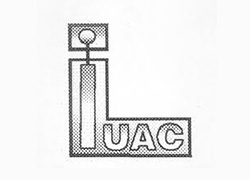 IUAC was the first Inter-University Centre to be established by the UGC in 1984. The primary objective of the Inter-University Accelerator Centre (IUAC), New Delhi is to establish within the university system a world-class facility for accelerator-based research. Its aim is to formulate common research programmes of research and development in collaboration with universities, IITs and other research institutions. It promotes group activities and human research development in experimental science and other branches of knowledge.
IUAC was the first Inter-University Centre to be established by the UGC in 1984. The primary objective of the Inter-University Accelerator Centre (IUAC), New Delhi is to establish within the university system a world-class facility for accelerator-based research. Its aim is to formulate common research programmes of research and development in collaboration with universities, IITs and other research institutions. It promotes group activities and human research development in experimental science and other branches of knowledge.
Inter-University Centre for Astronomy and Astro-Physics (IUCAA), Pune
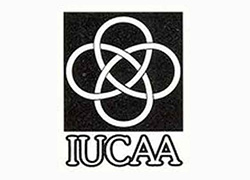 The Inter-University Centre for Astronomy and Astro-Physics (IUCAA), Pune was set up in 1988 as an autonomous centre of excellence to help initiate and nurture, research and developmental activities in Astronomy and Astrophysics in the University sector. IUCAA was set up with the basic purpose of providing advanced centralized facilities for subjects not adequately covered in the university departments and colleges.
The Inter-University Centre for Astronomy and Astro-Physics (IUCAA), Pune was set up in 1988 as an autonomous centre of excellence to help initiate and nurture, research and developmental activities in Astronomy and Astrophysics in the University sector. IUCAA was set up with the basic purpose of providing advanced centralized facilities for subjects not adequately covered in the university departments and colleges.
UGC-DAE Consortium for Scientific Research (UGC-DAE CSR), Indore
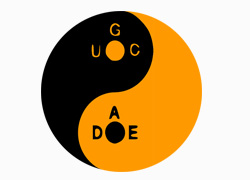 The UGC-DAE Consortium for Scientific Research (UGC-DAE CSR), Indore was created in the year 1990 with the broad objective of developing competence and promoting research in frontline areas of science and technology in Indian Universities by providing an institutional framework for optimum utilisation of major research facilities established by the Department of Atomic Energy such as Dhruv Reactor of Mumbai, VECC at Kolkata and Synchrotron Radiation Sources at Indore. The facilities of IUC can be availed by scientists from any university.
The UGC-DAE Consortium for Scientific Research (UGC-DAE CSR), Indore was created in the year 1990 with the broad objective of developing competence and promoting research in frontline areas of science and technology in Indian Universities by providing an institutional framework for optimum utilisation of major research facilities established by the Department of Atomic Energy such as Dhruv Reactor of Mumbai, VECC at Kolkata and Synchrotron Radiation Sources at Indore. The facilities of IUC can be availed by scientists from any university.
Consortium for Educational Communication (CEC)
 The Consortium for Educational Communication (CEC) has been established with the goal of addressing the needs of higher education through the use of a powerful medium of television along with the appropriate use of emerging Information Communication Technology (ICT). Realizing the potential and power of television to act as a means of educational knowledge dissemination, UGC started the Countrywide Classroom Programmes in the year 1984. For the production of educational programmes, initially, Media Centres were set up at 6 Universities. Subsequently, CEC was set up in 1993 as a nodal agency to coordinate, guide and facilitate such educational programme production through its Media Centres. Today 22 Media Centres, now known as, Educational Multimedia Research Centres (EMRCs) are working towards achieving this goal under the umbrella of CEC.
The Consortium for Educational Communication (CEC) has been established with the goal of addressing the needs of higher education through the use of a powerful medium of television along with the appropriate use of emerging Information Communication Technology (ICT). Realizing the potential and power of television to act as a means of educational knowledge dissemination, UGC started the Countrywide Classroom Programmes in the year 1984. For the production of educational programmes, initially, Media Centres were set up at 6 Universities. Subsequently, CEC was set up in 1993 as a nodal agency to coordinate, guide and facilitate such educational programme production through its Media Centres. Today 22 Media Centres, now known as, Educational Multimedia Research Centres (EMRCs) are working towards achieving this goal under the umbrella of CEC.
Information and Library Network Centre (INFLIBNET), Gandhinagar
 The Information and Library Network Centre (INFLIBNET), Gandhinagar serves towards modernization of libraries, serves as an information centre for transfer and access of information, supporting scholarships and learning and academic pursuits through a National Network of Libraries in around 264 Universities, Colleges and R&D Institutions across the country.
The Information and Library Network Centre (INFLIBNET), Gandhinagar serves towards modernization of libraries, serves as an information centre for transfer and access of information, supporting scholarships and learning and academic pursuits through a National Network of Libraries in around 264 Universities, Colleges and R&D Institutions across the country.
Inter-University Centre for Teacher Education (IUCTE), Varanasi
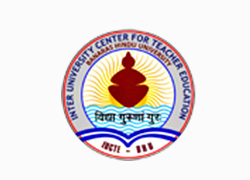 The Inter-University Centre for Teacher Education (IUCTE) at BHU, Varanasi is the most recent edition launched 25th December 2014 at Banaras Hindu University (BHU), focusing on teacher education.
The Inter-University Centre for Teacher Education (IUCTE) at BHU, Varanasi is the most recent edition launched 25th December 2014 at Banaras Hindu University (BHU), focusing on teacher education.
National Assessment and Accreditation Council (NAAC), Bengaluru
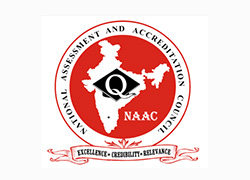 The National Assessment and Accreditation Council (NAAC) was established by the UGC in September 1994 at Bengaluru for evaluating the performance of the Universities and Colleges in the Country. NAAC's mandate includes the task of performance evaluation, assessment and accreditation of universities and colleges in the country. The philosophy of NAAC is based on objective and continuous improvement rather than being punitive or judgmental so that all institutions of higher learning are empowered to maximize their resources, opportunities and capabilities. Assessment is a performance evaluation of an institution and /or its units and is accomplished through a process based on self-study and peer review using defined criteria. Accreditation refers to the certification given by NAAC which is valid for a period of five years. At present, the Assessment and Accreditation by NAAC are done on a voluntary basis.
The National Assessment and Accreditation Council (NAAC) was established by the UGC in September 1994 at Bengaluru for evaluating the performance of the Universities and Colleges in the Country. NAAC's mandate includes the task of performance evaluation, assessment and accreditation of universities and colleges in the country. The philosophy of NAAC is based on objective and continuous improvement rather than being punitive or judgmental so that all institutions of higher learning are empowered to maximize their resources, opportunities and capabilities. Assessment is a performance evaluation of an institution and /or its units and is accomplished through a process based on self-study and peer review using defined criteria. Accreditation refers to the certification given by NAAC which is valid for a period of five years. At present, the Assessment and Accreditation by NAAC are done on a voluntary basis.
Source: University Grants Commission (UGC), Ministry of Education (MoE)
Last Modified : 5/10/2021
This topic provides information about national oly...
This topic provides information about Role of Nur...
Role of parents and teachers in overall developmen...
The topic covers details of UN Convention on the '...
